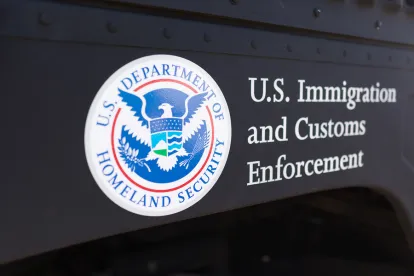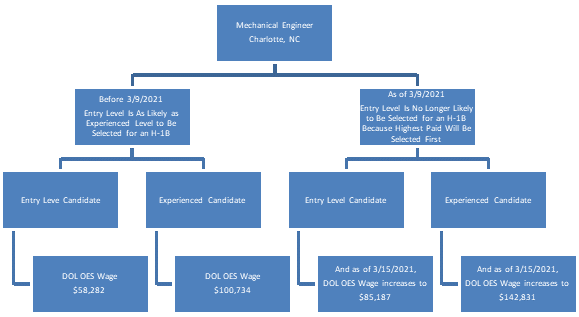On January 8, 2021, the U.S. Department of Homeland Security (DHS) published the Modification of H-1B Cap Registration Requirement for Petitioners Seeking to File Cap-Subject H-1B Petitions Rule. Should it be implemented, this rule will change how cap-subject H-1B visa registrations are selected for processing and dramatically impact employers’ ability to hire entry-level foreign national workers.
As background, the H-1B Temporary Worker visa category is intended for nonimmigrants with the requisite qualifications who seek to perform services in a specialty occupation in the United States. There are 65,000 H-1B visas available each government fiscal year. An additional 20,000 H-1B visas exist for nonimmigrants with graduate (master’s or higher) degrees from a U.S. institution of higher education. H-1B workers who are petitioned for, or employed at, an institution of higher education, or its affiliated or related nonprofit entities or a nonprofit research organization, or a government research organization are not subject to this numerical cap. In the event U.S. Citizenship and Immigration Services (USCIS) receives more requests than H-1B visas available, it holds a lottery. Since 1990, USCIS has relied upon a random selection process, which provides a level playing field for participants.
Under the new rule, which is slated to become effective March 9, 2021, DHS will no longer rely upon the random selection process and will instead prioritize selections by those employers offering the highest wages for the DOL job classification and location(s) of intended employment. The new rule:
-
Effectively eliminates an employer’s ability to hire entry-level foreign national workers (unless they offer artificially high wages in order to have the best chance at selection).
-
Requires USCIS to rank and select the registration based on the highest corresponding OES wage level that the proffered wage will equal or exceed.
-
Discourages use of alternate wage sources (published compensation surveys). If the wage from a published or employer-conducted survey falls below the Level I OES wage, USCIS will rank it at a Level I OES wage.
-
Permits employers to file new or amended petitions with lower wages only if the new wages would fall within the same wage level under the OES schedule.
-
Allows USCIS to reject, deny, or revoke petitions determined to be based upon fraudulent information (i.e., falsified wage offer to improve chance at selection) and to deny or revoke approval of a new or amended petition that contains a new wage that would fall in a lower wage level under the OES schedule.
In addition to the Modification rule described above, the U.S. Department of Labor (DOL), on January 14, 2021, republished the Strengthening Wage Protections for the Temporary and Permanent Employment of Certain Aliens in the United States rule. The rule was previously struck down by the federal court system in December because the DOL failed to invite public comment before implementation. The republished rule is scheduled to go into effect March 15, 2021. If it does, it will redefine the prevailing wage methodology DOL uses for the PERM, H-1B, H-1B1 and E-3 visa programs and result in significant increases to required wages sponsoring employers must pay their foreign national employees. Entry level salaries will jump from the 17th to the 45th percentile, and salaries for jobs requiring the most experience will increase from the 67th to the 95th percentile.
As background, a component of the H-1B petition process requires the sponsoring employer to complete and file a Labor Condition Application (“LCA”) with the DOL prior to the filing of the H-1B petition. The employer attests on the LCA that it will pay the foreign national employee a wage equal to the higher of either:
-
the “prevailing” wage for the specialty occupation in the local labor market; or
-
the “actual” wage paid by the employer to other workers with similar responsibilities and qualifications in the occupation.
To illustrate what changes these rules will bring should they become effective, here is a chart comparing an entry-level with an experienced Mechanical Engineer’s required wage and likelihood of selection in the H-1B lottery:
The good news for sponsoring employers is that these rules may never go into effect. Following his inauguration on January 20, 2021, President Joe Biden is expected to issue a memorandum that will delay implementation of “midnight regulations” (i.e., those issued since the election but not yet effective) for sixty (60) days. Stay tuned.



 />i
/>i


